
Camden is a happy child. He loves people. Hearing certain names lights his face up. Especially his friend in preschool who can’t walk or talk, either. They’re glued to each other. He would be outside every day all day if he could, playing with his friend or balls or dogs.
His family found out he had GM1 gangliosidosis in August 2021. Until then, his development had progressed normally. He stood then walked, babbled then talked. That summer though, the progress stopped, then reverted. His mobility and speech slowed and halted. Very concerned, his family took him to the doctor.
When they first went into it, they didn’t know anything other than the changes they had noticed. Their doctor only said that boys can be delayed. But this wasn’t a delay, this was a regression. Camden’s mom knew something was not right, that something deeper was going on.
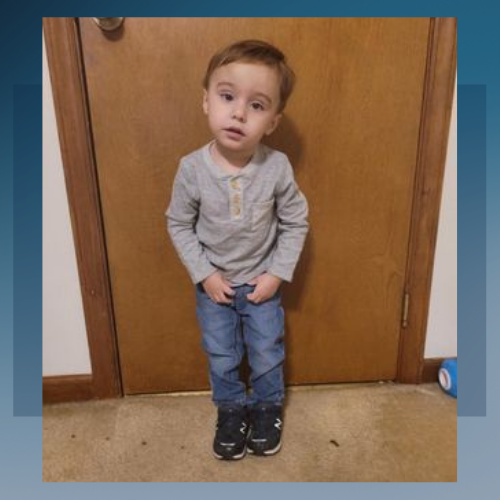
She pursued answers, seeing other doctors and getting second opinions. Eventually she got Camden a referral to a specialist. A referral which led to testing–and finally a diagnosis. While it was a huge relief to put a name to what was going on, GM1 gangliosidosis, their doctors weren’t familiar with the disease. They had no solutions. Camden’s family was only told he would get worse and quickly. Nothing was explained to them about genetics or these types of disorders. The doctors essentially said, “This is what you’ve got. Deal with it.”
When his family found Cure GM1, they finally found the help they were looking for. In addition to getting community and support, they learned about a clinical trial Camden could participate in, if he could apply soon enough.
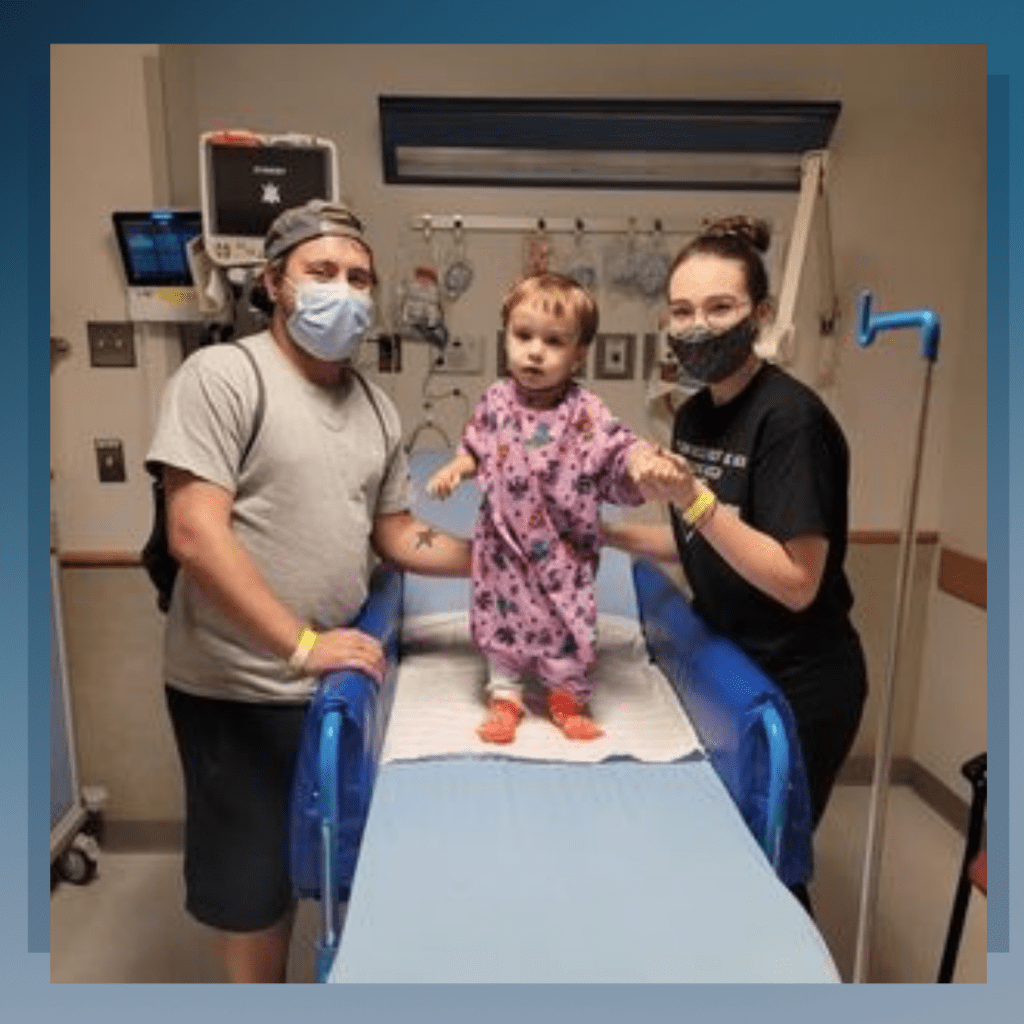
In the few weeks between when he was diagnosed in August and the clinical trial was due to take place in September, his family spent a whirlwind time preparing and submitting the application, then doing pretesting to make sure he was a good fit: an MRI, lumbar punctures, blood tests, CT scans, heart, hearing, and vision tests, and more. It was a lot in a short time.
Fortunately, everything went well, and his parents traveled to the testing site where the treatment was administered. The procedure, done via intracisternal injection, comes with risks. So Camden stayed near the trial site post-treatment for monitoring and recovery. All combined, with testing, recovery and monitoring, and more testing, Camden and his parents spent ten weeks at the trial site, before going home just in time for Thanksgiving.
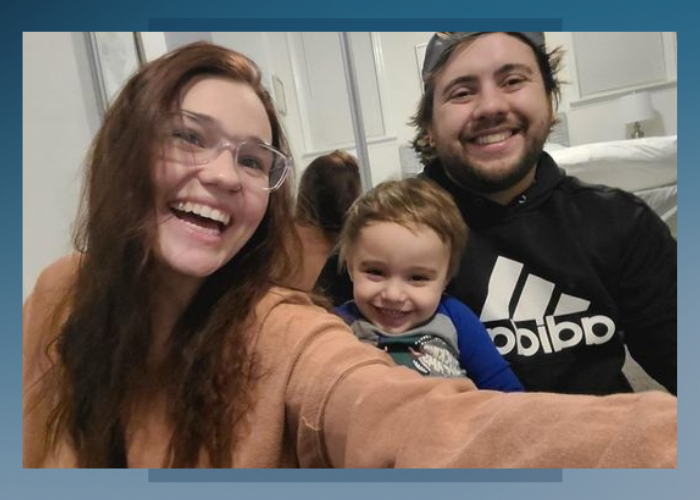
Now he visits for testing every three months to see how the treatment is working, and so far the trial is going well as far as his family can tell. The researchers won’t reveal their findings so as not to influence any results, but from what Camden’s family can see, his symptoms are holding. He hasn’t gotten any worse, and his muscle tone actually improved.
Still, he hasn’t regained most of the skills he lost. And Camden and his family have had to adjust to the disease and the trial at the same time. He can’t walk if someone isn’t holding his hand or he doesn’t have his walker. His family have to closely monitor him at all times. Whenever he eats, his family needs to watch to make sure he doesn’t choke. And, because of poor front muscle strength, he can get tired, fall backwards, and sometimes hit his head. Or, if he’s in the bathtub he can slip under the water.
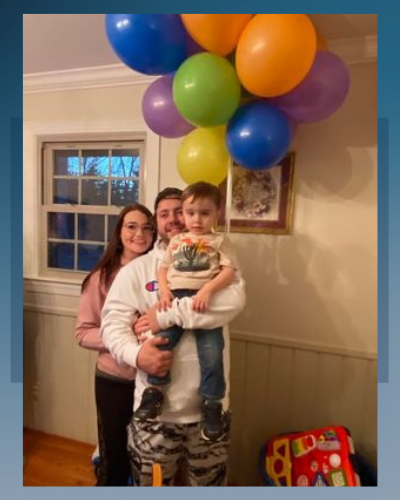
Camden’s grandmother wishes that the general public knew a little more about GM1. Firstly, though children like Camden are nonverbal, they have a lot to say. He is still in there and can get his point across. Experiencing that is a joy. Secondly, this is a degenerative disease, which means it gets worse and worse as time goes on, more difficult to live with, and eventually causes death.
This takes an emotional toll. Camden is a grandson, a son, a friend. So many people would lose him, which means you end up worrying not just for Camden, but everyone whose life he touches. It is especially difficult for Camden’s grandmother to see her daughter go through this. As a mother she wants to fix it, but can’t. One day, hopefully years down the road, but one day, her daughter could lose her child. Not knowing how to help her or Camden’s dad go through that is terrible.

The anticipation of that loss changes your perspective. Camden’s family knows firsthand that no one is guaranteed any time, and that they cannot take their days with Camden for granted. Before their time here comes to an end, Camden and his family have a lot to appreciate and enjoy. They know to pay attention to everything, little things and big, knowing they’ll each become a precious memory.
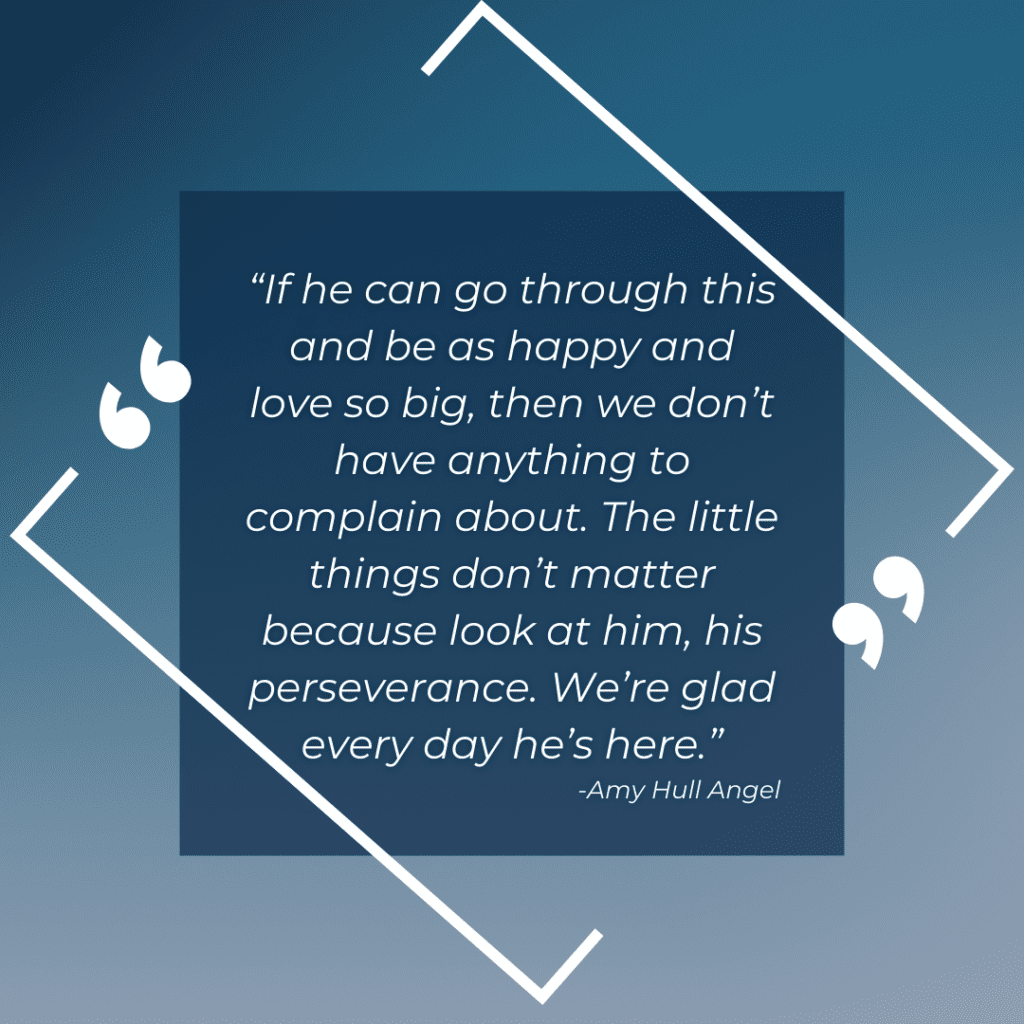
Camden’s grandmother’s advice for someone faced with a GM1 diagnosis: make sure you learn everything you can about the disease. Knowing more about GM1, genetics, and genetic disorders going into it would have helped Camden’s family know what to ask their doctor.
Also: be persistent. You know your child. You have instincts for a reason. If you feel like something’s wrong and you’re not getting answers or support, go somewhere else. Keep going. You can be a lot stronger than you think.
Special thanks to Amy Hull Angel, Camden’s Grandmother, for sharing his story.
